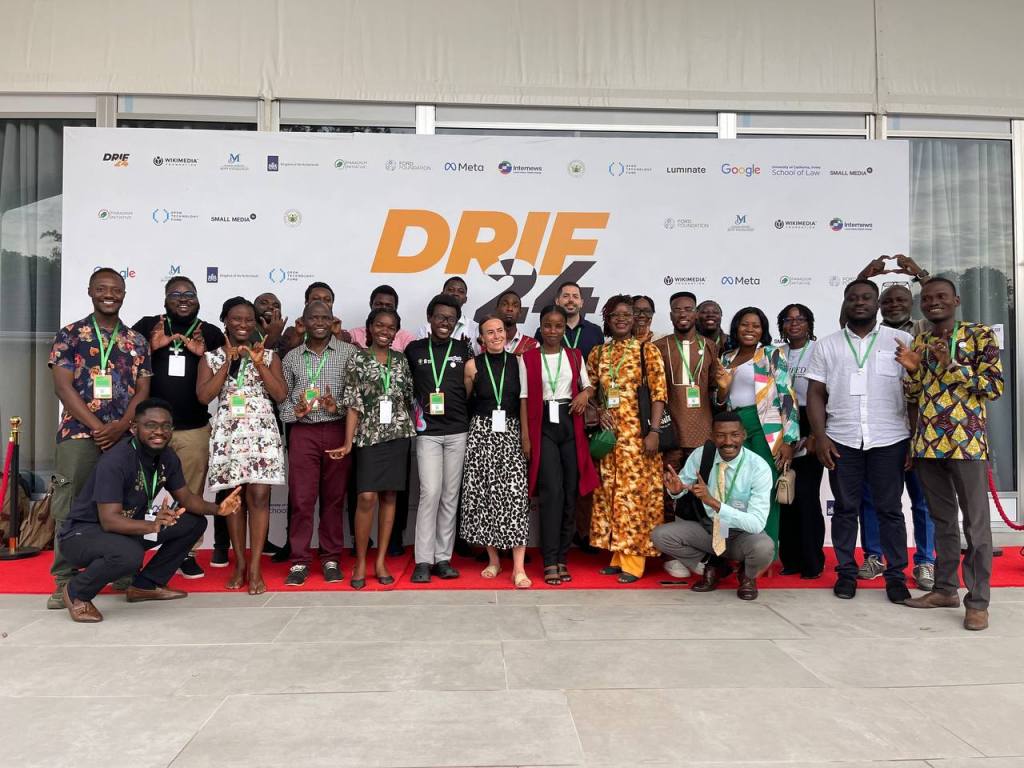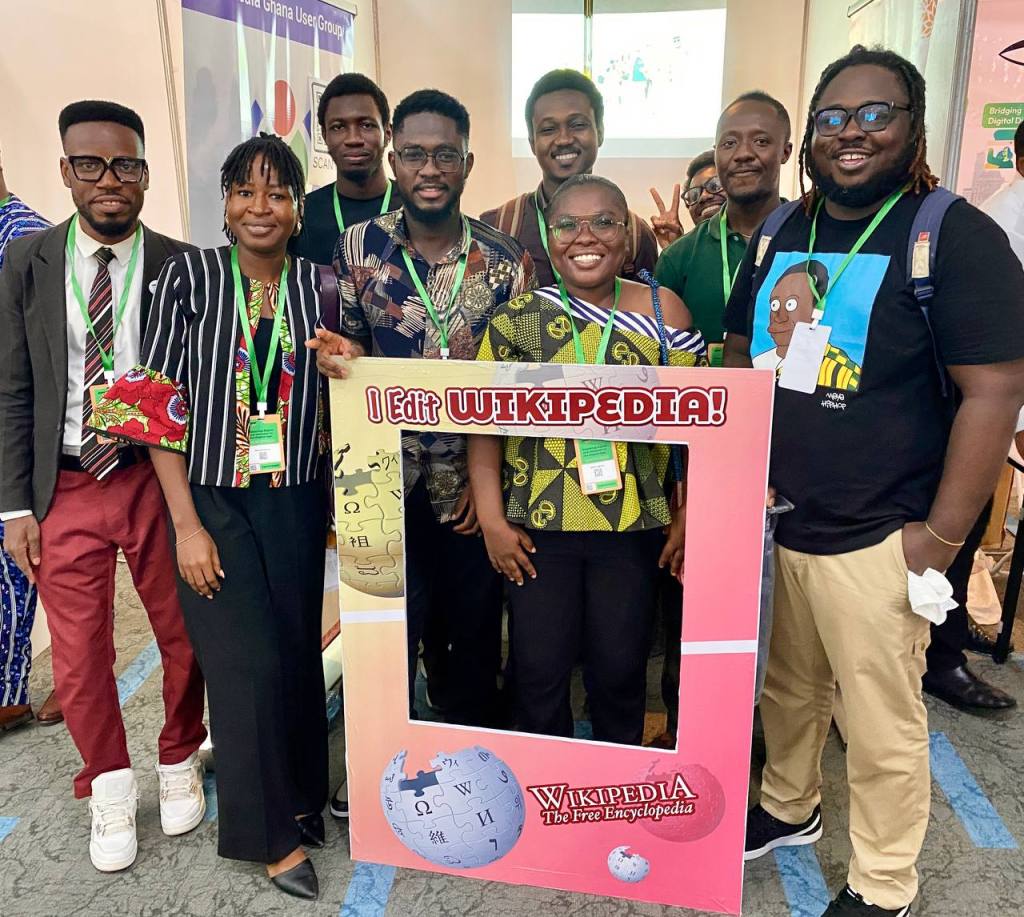
Last week, I had the incredible opportunity to delve into the world of digital rights and inclusivity at the Digital Rights and Inclusive Forum (DRIF 24) that took place from April 23rd to 25th, 2024, in Accra, Ghana, as a Wikimedian and representative of the Global Open Initiative Foundation (GOIF). It was an enriching experience that allowed me to connect with fellow Wikimedians from across the continent, share my knowledge of Wikipedia and its sister projects as well as various wiki communities in Ghana with some participants. I experienced some “aha” moments from the discussions that took place, and that made me happy. Plus, I even had the chance to pick up a new dance move!
Some of the topics of sessions I attended included fostering Trust Online in the Year of Democracy: Lessons on Combating Disinformation on Wikipedia, Artificial intelligence and emerging technologies and their impact on civic space in Africa, Artificial Intelligence for the energy transition, Artificial Intelligence and Disability: Reimagining Technology for a More Inclusive Society, and Digital Rights Advocacy: Mobilizing Communities for Change. Here are some key takeaways from these sessions.
Diversity and inclusion in the digital world are more than just buzzwords; they require deliberate action. True inclusivity means consulting with all relevant stakeholders, ensuring genuine public participation, and not just engaging with a select few who are easily accessible. This includes actively involving people with disabilities in the development and digital tools.
Policies, in general, are essential because they go a long way towards influencing wider adoption, but their effectiveness lies in their implementation and evaluation. Rushing to adopt digital policies without considering the context can lead to unintended consequences. It’s crucial to tailor policies to specific contexts to ensure they address the needs of all communities.
Enforcing digital laws should be a top priority. Those who breach digital rights and laws must be held accountable. Legal action should be taken, and the resulting funds, such as fines, should be used for the common good. This includes ensuring accessibility and inclusion for people with disabilities, thereby contributing to a more just and equitable society.
A speaker mentioned that “technology is good; however, it is the people behind technology that make it bad.” With the emergence of Artificial Intelligence (AI), there have been many theories regarding its use, with some in agreement and others in disagreement. Regardless, AI is here to stay, and it’s important for all stakeholders to be well aware of its benefits as well as its risks in order to explore it to its best advantage. During my preparation for DRIF, our lights went out, leaving me agitated due to the lack of a simple timetable to plan accordingly. Then, a random thought struck me: why not recommend to the Electricity Company of Ghana to ask ChatGPT to come up with a timetable for Ghana via a tweet? Little did I know that this thought could somewhat be explored. At the session on Artificial Intelligence for the energy transition, I learned about how AI can be used to provide better supply solutions by monitoring household consumption, among other applications.
Knowledge of digital security and rights is important. It’s essential to educate ourselves about them and share that knowledge with others. As I left DRIF, one question lingered in my mind: are people aware of their digital rights and are they protecting themselves enough? On this note, do check out this course on Assessing your digital security risks.
Over all, DRIF 24 was a call to action. It reminded us that the digital world we’re building should be accessible, inclusive, and protective of everyone’s rights. A special thanks to the organisers, speakers, and participants for making it a memorable event. Events like DRIF 24 remind us of the importance of continuous learning and unlearning. They challenge us to reflect on our practices and advocate for positive change. Let’s keep the momentum going and work towards a digital future that is inclusive, secure, and respects everyone’s rights.


Can you help us translate this article?
In order for this article to reach as many people as possible we would like your help. Can you translate this article to get the message out?
Start translation